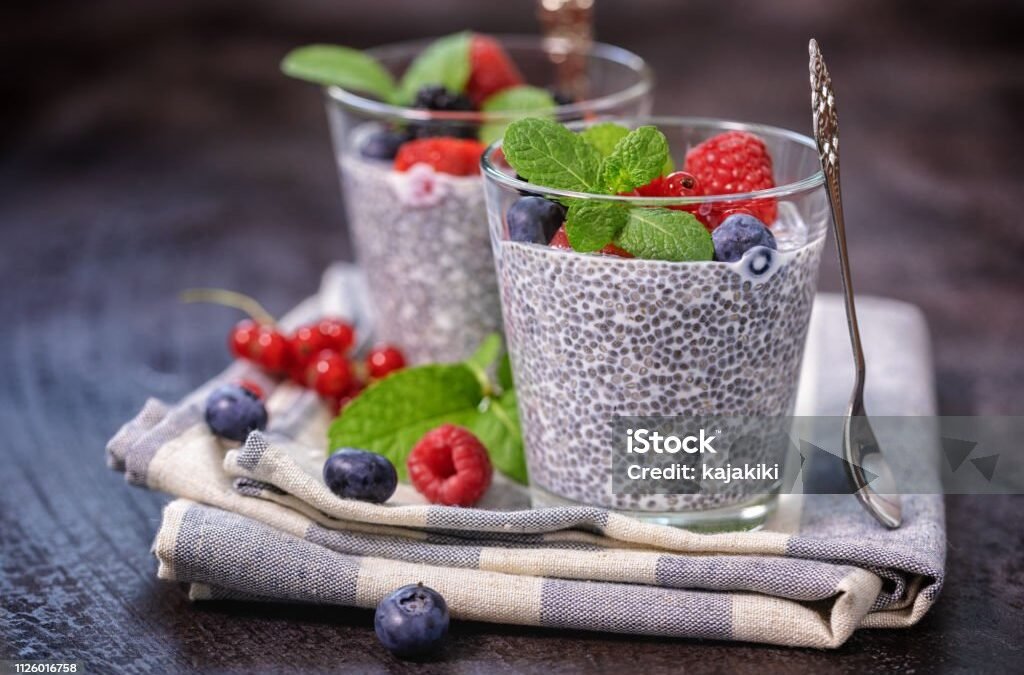What is chia sheeds?
Chia seeds or chia seeds are the seeds of the Salvia Hispanica plant that grows in the desert. The original birthplace of this very useful seed is Central America and there is evidence that this seed was included in the diet of the ancient indigenous Aztec people there. The ancient Maya and Aztecs valued chia seeds more than gold. They believed it would give them strength and courage.
Chia seeds grow in all climates and are less susceptible to insect attack.
Proven Health Benefits Of Chia Sheeds
increase their intake of omega-3 fatty acids, fiber, vitamins, minerals, antioxidants and more”. “From “Chia seeds are an excellent plant-based food that helps people supporting heart health and blood sugar balance to aiding digestion and regularity, chia seeds are a [smart] plant ally that most people have on hand.”
Here’s the full breakdown of why you should add chia seeds to your weekly menu.
Full of essential nutrients
Chia seeds are a nutritional powerhouse, packed with essential vitamins and minerals. They are an excellent source of fiber, protein, omega-3 fatty acids, calcium, magnesium and antioxidants. Regular consumption of chia seeds can contribute to overall nutrient intake, supporting various bodily functions.
Contains antioxidant properties
Chia seeds contain antioxidants such as quercetin, chlorogenic acid, and caffeic acid, which help protect the body from oxidative stress. “Antioxidants neutralize free radicals and unstable
molecules that can damage cells and contribute to various chronic diseases, including heart disease and cancer,” says Lokeshappa.
Rich in anti-inflammatory properties
Chronic inflammation is linked to a variety of health problems, including heart disease and arthritis. Chia seeds contain antioxidants that possess anti-inflammatory properties, which help fight inflammation in the body. Including chia seeds in your diet can reduce the risk of chronic diseases associated with inflammation.
Promotes heart health
The omega-3 fatty acids found in chia seeds, especially alpha-linoleic acid (ALA), play an important role in maintaining heart health. According to a study published in Food Science and Nutrition, ALA is associated with a reduced risk of cardiovascular disease. It helps reduce blood pressure, inflammation and improve cholesterol levels.
Good for bone health
Chia seeds are rich in nutrients that are essential for bone health, such as calcium, phosphorus and magnesium. According to Lokeshappa, “These nutrients are important for maintaining strong and healthy bones and reducing the risk of conditions like osteoporosis.”
Maintains healthy digestion
The high fiber content of chia seeds supports a healthy digestive system. Fiber helps with regular bowel movements, prevents constipation and supports the growth of beneficial gut bacteria. A healthy digestive system is essential for nutrient absorption and overall well-being.
Helps in weight loss
Chia seeds are an excellent source of dietary fiber. This soluble fiber helps form a gel-like substance in the digestive tract, promotes regular bowel movements, and prevents constipation. Additionally, it induces a feeling of fullness, which can support weight loss efforts by preventing excess calorie intake. Explains Lokeshappa.
Controls blood sugar
Soluble fiber in chia seeds helps regulate blood sugar levels. Fiber, fat and protein break down carbohydrates. As a result, it regulates the glycemic index of carbohydrate foods and prevents rapid rise and crash of blood glucose levels.
Improves brain health
Omega-3 fatty acids, especially DHA (docosahexaenoic acid), are essential for brain health. Although chia seeds contain ALA, which the body can convert to DHA to some extent, they may still contribute to cognitive function and support overall brain health.
Increases sexual desire
According to research published by IMR Press, chia seeds are incredibly nutrient-dense because they contain high amounts of omega-3 fatty acids, polyunsaturated fatty acids, dietary fiber, protein, vitamins and minerals. Chia seeds can increase your sex drive due to their fatty acids. These tiny seeds help increase testosterone naturally, and testosterone is associated with feelings of sex drive, energy, and power.
Controls hair loss
Chia seeds are an excellent source of minerals, dietary fiber and omega-3 fatty acids, all of which can reduce hair loss. Additionally, the zinc and copper found in chia seeds help prevent scalp infections and hair thinning.
How to consume chia seeds?
1. Chia Seed Pudding: Mix chia seeds with your milk of choice (dairy or plant-based), add a sweetener like honey or maple syrup, and let it sit in the fridge overnight. Wake up to a delicious and nutritious chia seed pudding.
2. Smoothies: Boost the nutritional value of your smoothie by sprinkling a tablespoon or two of chia seeds. They add a subtle crunch and provide an extra dose of fiber and protein.
3. Yogurt Toppings: Sprinkle chia seeds over your yogurt or Greek yogurt for an easy way to incorporate them into your breakfast or snack. It adds texture and a nutritional boost.
4. Add to Salad: Sprinkle chia seeds on your salad or mix into salad dressing. They add a nutty flavor and contribute healthy fats, fiber and protein to your greens.
5. Chia Seed Oatmeal: If you eat oatmeal for breakfast, you can also add chia seeds to it.
Follow these easy ways to eat chia seeds and enjoy!
Takeaway
Chia seeds deserve a place on any superfood list. They are high in fiber, provide healthy fats and are a source of antioxidants. Eating chia seeds is an easy way to add nutrients to your diet.
According to research, chia seeds are safe to consume, but may cause allergic reactions in some people. They warn that the seeds may interact with blood-thinning medications such as Coumadin and Warfarin. People taking blood pressure medication should consume chia seeds with caution. Talk to your doctor if you have concerns.


Recent Comments